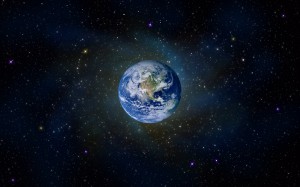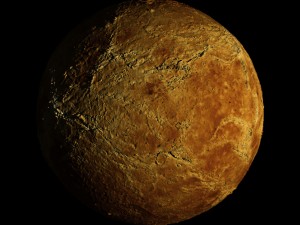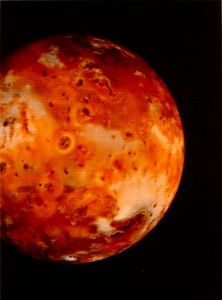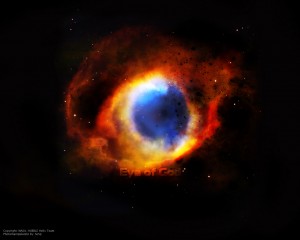I recently got into a mini-debate on Facebook regarding evolution. The debate was Darwin versus the various Christian or Biblical versions of creation. I’m not a particularly religious person, and I’m not even sure this is a post for this website, but I thought the exercise might be good for my old brain.
Today the notion of “God” creating the universe and everything in it is often considered passe. More than that, it seems popular to infer that those who subscribe to the Biblical concepts of man’s origins are at best ignorant, and at worst…well at worst maybe too stupid to live.
“Science” seems to rule this discussion. “The Origin of the Species” written by Charles Darwin and published in 1959 is the “bible” of the science believers. I am not smart enough nor educated well enough to completely understand Darwin’s work, but as a practical measure, it seems to make sense. Certainly it seems easier to buy into Darwin’s theory than the notion that God made the earth and everything on it in seven days. But is it really easier? Is it really “different” than the Biblical version?
First, let’s despense with the idea that the “days” in the Bible were actually days. Time frames that were possibly millions of years long are difficult enough for anyone in the modern world to comprehend. During Biblical times, it was probably incomprehensibe. Could we not however simply entertain the idea that one “day” in the Bible actually could have been thousands of years? Or even millions for that matter? Current thinking places the age of the earth at around 4.5 billion years. Dividing this by six (on the seventh day God rested), we get each “day” being about 750 million years long. That many million is almost impossible to grasp as it is, much less billions of years. Why not just call each of these time periods “days” and make it easier to understand. It’s a metaphor folks, a rhetorical figure of speech that makes the blindingly complex a bit easier to comprehend.
So if the only difference between Bible believers and science believers is a time frame, what is the big hang-up? A time frame metaphor hardly seems worthy of any sort of serious debate. You say tomatoe I say tomato.
But there’s more to it, isn’t there? Much more. The real issue isn’t about how long the planet took to cool and evolve, or even the specifics of how that may have happened. The real argument is why it happened. that’s what it’s all about, isn’t it? Did we just evolve as a random group of molecules from a firey “big bang” to the structured planet we are today? Or, was there something or Someone behind it? Are we a result of “intelligent design”?
I find it interesting that today all but the strongest religionists shy away form saying things like “God created man”. Today, in keeping with polictical correctness, we can only enter the discussion by meekly referring to intelligent design, whatever that is. Even suggesting that however, seems to raise eyebrows among the enlightened. Surely anyone who even suggests we evolved by design rather than happerstance must be a little foggy brained at best.
So then, if we were not created deliberately by a supreme being, how did we get here? The most common alternative to creationism theory I’ve heard is that we just “sort of happened”. In other words, some random collection of neutrons, protons and other tons all just came together somehow and created life. All life on earth is nothing more than a freak occurance, an accident for lack of a better word.
Here’s my problem with that: First, if we are an accidental happening, it seems unlikely that this randomness happened elsewhere. Our species — our evolved species is unique in the universe. If there are any other “accidents” out there, they probably are nothing like us. So we may be alone, but that’s not the big point to me.
If we have evolved from this cosmic accident, life has no meaning. There was no plan making us, so we are no different than anything else in that life cycle. We are no different than a snake or a bird or an insect. We are a lifeform that simply “happened” If we’re “different” than the others, that’s only because we see ourselves as different, not that we really are.
Beyond that, if we are an accidental occurance on an accidental planet, life and death have no meaning. Before we were born we did not exist, and after we die we do not exist. Gone. Nothing, zero, zilch. Any meaning we give to life is nothing more than something we have simply rationalized. There is no Supreme Being, there is no Heaven, there is no Hell, there is only nothing. Human beings are just like a bug that gets stepped on — gone and not only forgotten, but never even noticed.
If we are simply accidental, then moral structures should be optional. To be sure, they seem to be so with some people, but the notion of laws and rules based on moral codes does not apply. After all, where did most of our laws and codes come from? “Thou shalt not kill”, “Thou shalt not steal”, etc and so forth. These all came from religions, all of which believe in some Higher Authority. If could be argued that without these laws and rules there would be chaos, and probably so. But the question is not whether or not these are good things, but rather where these concepts came from. Did they just happen accidently as well? Or were they given to man from someone else; someone who is not man?
Check out this picture. Beautiful, isn’t it? Of all the planets known to man, earth is surely the most beautiful. All alone in our visible space, we sit, blue and green and gorgeous.
Mars? Not so much. A pretty bleak and desolate rock.
Venus too. Wouldn’t want to live there.
And Jupiter’s moon Io – forget about it.
The point is this. The planet that is beautiful, even from deep in space, is earth — the accident? All that randomness created this beautiful planet, which just happens to be the only one with life on it. Wow – what a miracle. No wait, can’t be a miracle, as that implies outside forces. Must be just a super cool accident.
Attempting to sum this up before it meanders any further, I think this: When we get old, we start to think more directly about topics such as life and death. I think younger people avoid these thoughts and rightly so. Life has too much living in it to think about it ending. But when we realize we have a far shorter future than a past, such things come to mind.
Dying and just being “gone” does not appeal to me. I think the idea that we just “end” and go no place else is too shallow a thought. Not believing in an afterlife requires nothing. We don’t have to worry if we have been just or unjust, fair or unfair, good or evil. None of that matters, because there is nothing after this. Believing in an afterlife, Heaven or Hell, or anything else requires an accounting. It requires us to reflect on the good and bad we have done. It requires some sort of reconcilliation to set things right.
So in the end, I’m pretty satisfied that we are no accident. I can’t say I know anything about the Creator, other than the fact I believe He exists. In that respect, I’m trying to do my own sort of reconciling these days.





